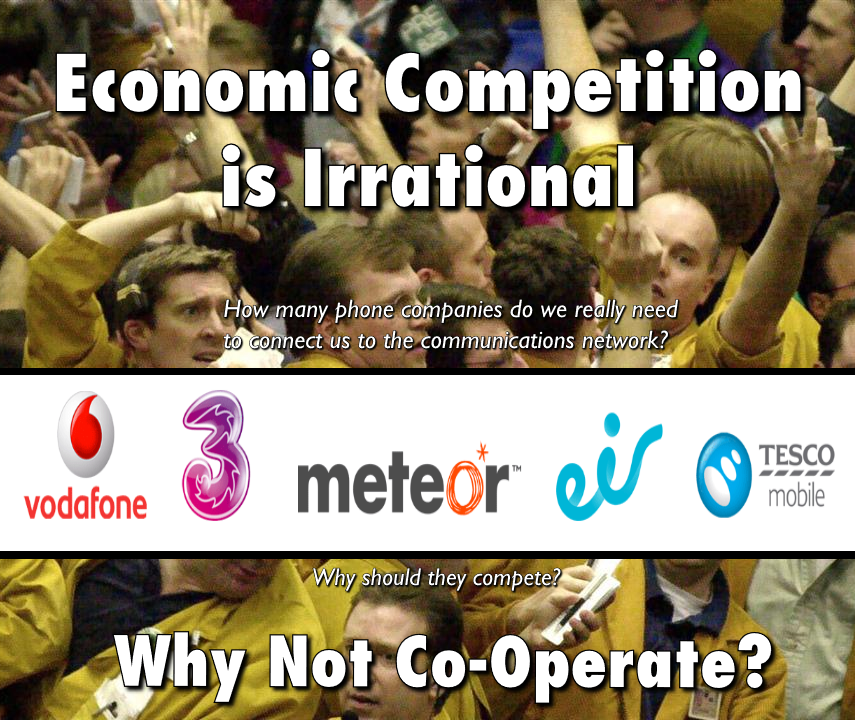Over 30 years of anarchist writing from Ireland listed under hundreds of topics
Basic Anarchism
Anarchists and the right to choose
 We envisage an anarchist society as a society where people are free to make choices about their own lives. We picture a society where decisions are made at the lowest effective level. For women, this includes the decision whether or not to become pregnant, whether or not to remain pregnant, whether or not to have children.
We envisage an anarchist society as a society where people are free to make choices about their own lives. We picture a society where decisions are made at the lowest effective level. For women, this includes the decision whether or not to become pregnant, whether or not to remain pregnant, whether or not to have children.
Anarchism, militarism and civil war - Can you have an anarchist army? - Looking at the Makhnovist Movement
AS ANARCHISTS believe the bosses will resist a revolution, it follows that we accept the need for armed force to defend the revolution. But anarchists also oppose militarism, that includes standing armies controlled by the state with officers who have special privileges like extra rations, better quarters, saluting, etc. So what alternative do anarchists propose? [Greek translation]
An anarchist introduction to trade unions
TRADE UNIONS were founded to defend the interests of workers, but today have become more and more dominated by an unaccountable, and often unelected, bureaucracy. Trade unions - or at least their leadership - have been co-opted into becoming partners with Capital, and see their role as managing their members, controlling difficult situations rather than leading struggles. You are much more likely to see a trade union official selling the management's latest "productivity package" or "re-structuring deal" than to hear him/her calling for an occupation of a plant to avoid its closure, or for industrial action to fight redundancies.Given this, one might wonder why anarchists spend so much time talking about and working inside the trade unions. To write off trade unions, however, is to ignore the basic fact that for a worker to join a trade union means having to recognise, to some degree, that he or she has different interests to the bosses.
Which Way to the Revolution?
A complete transformation of society, revolution, is the goal of anarchism. Ray Cunningham looks at what is meant when anarchists talk about revolution, and what can be done to bring it closer.
From the 1870's the world has been rocked by revolutions, but all have gone down to defeat. Anarchists believe they understand why previous revolutions have failed, but do we know how a successful revolution can be made? Are there steps we can take today to prepare and nurture such a revolution, or is it a question of waiting for the ripening of time?
Marx and The State
Some Marxists claim Marx was a libertarian, and Leninism and social democracy are not really Marxist. But in doing so they ignore the anarchist critique of Marx's political ideas on the state, the party and the organisation of a socialist revolution. Conor Mc Loughlin looks at the contradictions within Marx's political writings.
Marx & the State
Syndicalism : Its strengths & weaknesses
The main organisational form in libertarian politics in 1994 was syndicalism. Alan MacSimon, a delegate to Dublin Council of Trade Unions who has also attended a European gathering of revolutionary unions looked at the potential, and limits, of syndicalism.
Thinking about Anarchism: Anarchist Organisation
One of the greatest myths that has been fostered about anarchists is that they are disorganised. Since the anarchist movement first emerged in the International Working Mens' Association in the 1870's it has developed many trends. Each with its own method of organisation.
An introduction to the Russian Revolution from an anarchist perspective
The Russian revolution of 1917 has been a subject of key importance to anarchists for 70 years now, for two reasons. The first reason is that for the first time in history a working class revolution succeeded in ousting the old ruling classes. The second reason is that after the old ruling class was ousted a new class came to power. Those of us who want to make a revolution to-day must understand where the successes and failures of the past came from.
Thinking About Anarchism: Competition Versus Co-operation
Consider the accompanying image: phone service providers.  How many of these companies does a rational society really need? Their job is to connect our mobile phones to communications networks (GSM, 3G, 4G, Wi-Fi). Do we really need five such organisations in the 26 counties to attempt that same task? And who does it benefit that these five organisations compete with one another for profit? After all, they are all using the same infrastructure! Surely five organisations co-operating will be more effective than five walled-off organisations each attempting the same task individually.
How many of these companies does a rational society really need? Their job is to connect our mobile phones to communications networks (GSM, 3G, 4G, Wi-Fi). Do we really need five such organisations in the 26 counties to attempt that same task? And who does it benefit that these five organisations compete with one another for profit? After all, they are all using the same infrastructure! Surely five organisations co-operating will be more effective than five walled-off organisations each attempting the same task individually.
But this article is not about phone coverage in particular. It is about those broader questions which run right through the fabric of our societies.
WSM Points of Unity Explained: 9 - Ecology and Technology
'9. Revolution must aim to bring human society into harmony with the rest of nature, for our own basic quality of life and for the sake of other species. This aim is not fundamentally opposed to technological development or mass society, which are always expressions of the current social system. Rather, we strive for a libertarian, ecological, technology.'
When we consider the billions of barren, lifeless, planets in our universe, it is a stark reminder of how vital the physical environment is to the existence and flourishing of life. The proper balance and functioning of the Earth’s climate and ecosystems is the basis of everything good on our planet – access to food, water, tolerable temperature, and shelter from extreme weather.

